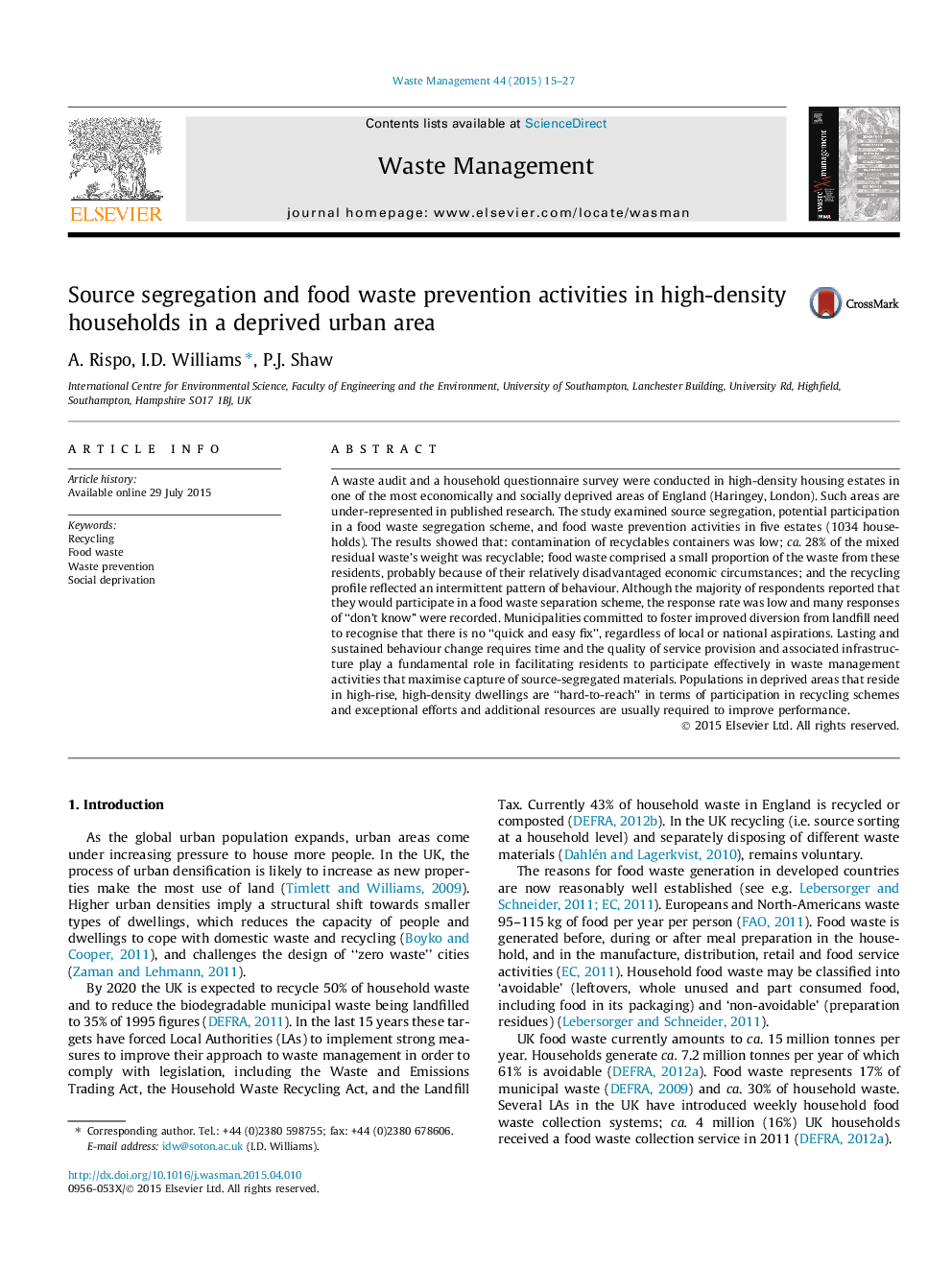| کد مقاله | کد نشریه | سال انتشار | مقاله انگلیسی | نسخه تمام متن |
|---|---|---|---|---|
| 4471352 | 1622641 | 2015 | 13 صفحه PDF | دانلود رایگان |
• Study of waste management in economically and socially deprived high-density housing.
• Food waste segregation, prevention and recycling activities investigated.
• Study involved a waste audit and household survey of 1034 households.
• Populations in such areas are “hard-to-reach”.
• Exceptional efforts and additional resources are required to improve performance.
A waste audit and a household questionnaire survey were conducted in high-density housing estates in one of the most economically and socially deprived areas of England (Haringey, London). Such areas are under-represented in published research. The study examined source segregation, potential participation in a food waste segregation scheme, and food waste prevention activities in five estates (1034 households). The results showed that: contamination of recyclables containers was low; ca. 28% of the mixed residual waste’s weight was recyclable; food waste comprised a small proportion of the waste from these residents, probably because of their relatively disadvantaged economic circumstances; and the recycling profile reflected an intermittent pattern of behaviour. Although the majority of respondents reported that they would participate in a food waste separation scheme, the response rate was low and many responses of “don’t know” were recorded. Municipalities committed to foster improved diversion from landfill need to recognise that there is no “quick and easy fix”, regardless of local or national aspirations. Lasting and sustained behaviour change requires time and the quality of service provision and associated infrastructure play a fundamental role in facilitating residents to participate effectively in waste management activities that maximise capture of source-segregated materials. Populations in deprived areas that reside in high-rise, high-density dwellings are “hard-to-reach” in terms of participation in recycling schemes and exceptional efforts and additional resources are usually required to improve performance.
Journal: Waste Management - Volume 44, October 2015, Pages 15–27
